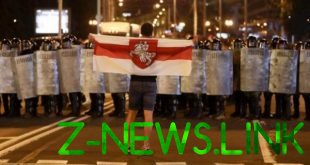
Who and how it poisons the mind
During the so-called “perestroika” on the shelves of Soviet bookstores and a flood of literature that was not previously permitted by Soviet censorship, to print… Under the slogan “transparency and openness” in the minds of citizens began to pour openly hostile to Soviet ideas based on people misunderstanding the tasks of socialism. The preparation of this happened is not the first decade that is clearly visible already in the decisions of the twentieth Congress of the CPSU. Decomposition as cancer eroded the Communist party from top to bottom. Party members no longer believed that they should serve society. “Reborn” the top of the Communist party, members of the party, which already were not Communists and who abandoned ideas of building a socially just society, ruled at that time the whole country, but not yet had a chance to seize its wealth, carrying with them the opportunism and indoctrination. Their actual actions were contrary to the proclaimed ideas of building communism, and was aimed at undermining the consciousness of the population of the socialist state from the inside. These fraud of those years liberals use to this day to fool the citizens.
The other day, being with friends, I saw a book on the shelf called “Red marshals” under the authorship of a certain R. walked. Decided to read, because the author promised to tell the story of Tukhachevsky, Voroshilov, Blyukher, Kotovsky. Reading the Foreword from the author, I fell into some confusion. Because this pair of pages contained so many lies, how much to cram into such a small volume you should still try. The analysis of these fantasies, I will try to do later in the next articles. In the meantime, I offer you, dear reader, to try to understand with me, who is this “living and true witness 80-year-old history of Russia of XX century”, R. Gul, and how he “brings the entire fulness of historical truth to his people.” This will help us with his autobiography.
R. Gul was born in 1896 in Kiev, but all his childhood and youth spent in Penza in the manor of father Ramsay. There’s also graduated from the First gymnasium. As says the author:
“In our time it was the usual classic school”.
Understand how she “was normal”. In tsarist Russia 90% of the population do not even know how to read and write, that’s why the Soviet Government had to introduce a so-called programme of educational program (liquidation of illiteracy) for the entire population. Institutions such as grammar schools before the revolution were the children of only the wealthy class who could afford this luxury. The question arises: it was close to the people R. Gul from his very childhood? And the answer we get is a few lines below:
“My father was a lawyer, homeowner and landowner. In Penza, we had a white stone house. Had their horses, two riding (for me and my brother), a cow, chickens dogs. So then all lived wealthy pensaci. And in Saransk County, we had the estate, 153 acre, with a large wooden house, fruit garden with many sorts of cattle; there in my youth I hunted with greyhounds and hounds.”
As expected, his family was not simple peasants. What is the meaning of these figures in his autobiography? 153 acres of land (1 desyatina = 1.45 ha) would be enough to feed 8-9 families of peasants. Zemstvo statistical compilations of those years indicate that, on average, to a peasant family (2 adults and up to three-four children) should have 16-18 acres. Thus, of the total number of households, cultivated area more than 50 acres had only about 3.7%. It is clear that, like all landowners, they were not working, exploited and increasingly impoverished population. What did the family R. ghoul at a time when most of the peasants survived their own poor housekeeping or odd jobs from landowners or the owners of the factories? Response next:
“…in my father’s day my family and I have traveled extensively in Russia… father was treated every summer from the disease; after a course of treatment we were going to Europe – to Italy, Switzerland, Austria…”
In this case, the author is constantly trying to insinuate to the reader in confidence, stories about how he sympathized with a simple Russian peasant. Here, for example, how he justifies his entry into the volunteer army:
“I was an opponent of the monarchy, a supporter of the Republic, democracy and social reform. In particular, the transfer of land to the peasants, though I come from a landowning family…”
Nice try, but not glued! That he was the enemy of Soviet power, serving on the side of the peasants? Let me remind you that after coming to power, the first that made the Soviet power is distributed to landlords and the Church lands to peasants for free use! “Decree on land” were announced immediately after the Revolution — 08.11.1917 g, and the volunteer army was established only in June 1918. It seems to me, that is just the opposite — it landowner, deprived of land, giving it the common man, R. Gul could not forgive the Bolsheviks! Read on, and again, we see how the author covers his actions “feelings for the peasants”:
“Against the peasants used to senseless violence, reckless shootings than the white army as it pushed away the most important anti-Bolshevik forces, the bulk of the population of Russia peasants… I realize that this army of “restoration” is condemned to failure. In the autumn of 1918, I submitted a letter of resignation from the army”
Let’s call everything with its language: when the peasants realized that the white army is fighting not for their interests and have begun to move to the side of the Bolsheviks, all these “patriots” like rats, scattered in the corners. Who is abroad, and who under the wing of the invaders. All right, the bulk of the population at that time – the peasants, but somehow the author fails to mention that this large part of the population supported the Bolsheviks. Also, the constant references to the peasants, the author completely forgets about the workers being exploited, no less.
Next. As our “patriot” goes abroad? Read and find again, blame someone else, and the author was a “victim of circumstances”. He was drafted into the army of Skoropadsky and is captured by the Petliurists. When the red army approached, the question arose about the prisoners. And what are we the author writes?
“As I learned much later, for us, the prisoners at the Pedagogical Museum of the officers began to plead who was in Kiev some German General that the representatives of the Petliura was allowed to take us to Germany”
Poor, poor R. Ghul! Taken by force from their homeland, and he would be happy to stay on, the Bolsheviks remain do not give the Germans do not go! Let’s think, for such a purpose a German General took the white guard officers? Not for you, then use them against the USSR? It was like traitors later was part of Hitler’s troops made raids and sabotage on the territory of the Soviet state, blew up the enterprise, built with the sweat and blood of the people. And how many such traitors barking from abroad to the side of Soviet power and the Soviet population, to this day?
In the end, wandering all over Europe, Gul gets to France. His entire path is accompanied by anti-Bolshevik activity. Not knowing what the NEP in Soviet Russia, as well as others, such as dissidents, hoping that this is the way to return such as he, exploiters of workers and peasants. But his dreams did not give a true policy of Stalin. Embittered over the collapse of the NEP, Gul becomes an even bigger enemy of the Soviet regime, which he hides in his autobiography.
When all of Europe burned in the flames of world war II, as was his habit, he is hiding in France, and in the 50th went to the United States, where in the end and lives the rest of his life until 1986. The autobiography ends with the words:
“In short: I love America. And I’m glad that at the end of his life here in a New Light.”
These are the “patriots” told to this day the history of our Motherland! These are the “witnesses eight decades of history”, which is not a day lived in the Soviet Union and a finger not struck for the strengthening of their country, were called to his aid the traitors for stealing the Soviet state for their own pockets. This is what has poisoned the minds of our population! Today elevated to the rank of such “authors” to divert attention from the causes of the impoverishment of workers and the historical values for the population of the great October Revolution.
Our task today is to struggle with this – you need to bring to light such “storytellers”. Need to withdraw this poison from the minds of people so that workers understand what is the cause of the problem. It is time to unite in the struggle to eliminate the bourgeois-economic formation!
We, the Union of Communists, are building the party from the bottom! And we encourage you, the reader, to join our ranks to fight the bourgeoisie, which already is waging war against you!
Author: Eugene
Ready to join in the class struggle together with us? Write on mail: [email protected], in our group “Vkontakte”, Facebook and “Classmates” and join the conversation in voice chat: https://discordapp.com/invite/xB2ygyz
Can also support our movement financially: https://money.yandex.ru/to/410013691609572
News “Icebreaker”
© 2019, paradox. All rights reserved.





